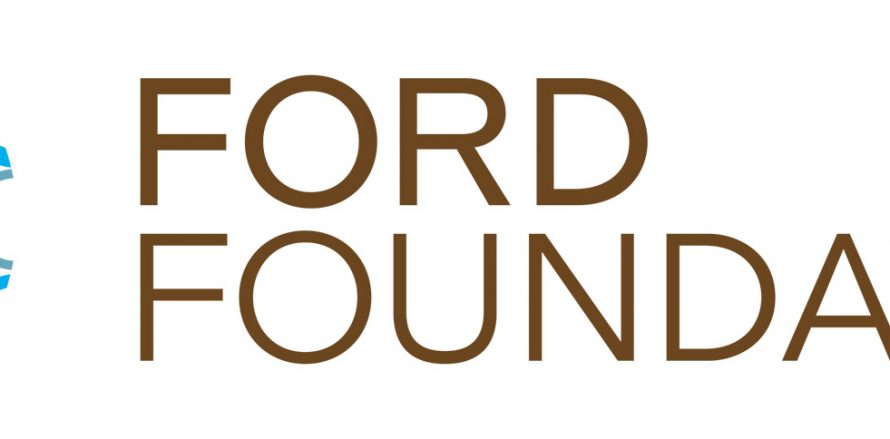- A major commitment to be phased in over 10 years
- Largest commitment of its kind by a private foundation
- An effort to help advance the broader marketplace for impact investing
- Resulting MRI investments will initially focus on affordable housing, financial services
- “The next generation of innovation in philanthropic impact”
NEW YORK / 5 April 2017 – The Ford Foundation today announced it is committing up to $1 billion from its $12 billion endowment over the next 10 years to the nascent investment field known as mission-related investing.
The commitment is one of the largest ever made to MRIs, and the largest by a private foundation. The move sends a signal to other foundation and institutional investors that perhaps the time has come to consider the potential of impact investing.
Using a deliberate and phased approach, the foundation will gradually carve out funds from its existing investment portfolio and deploy them over time into funds seeking to earn not only attractive financial returns but concrete social returns as well. Initial investments will focus on areas where the foundation has deep prior experience and sees both significant investment opportunity and significant alignment with its mission to reduce poverty and injustice. Two initial areas of focus are affordable housing in the United States and access to financial services in emerging markets.
“We are making this commitment because we believe MRIs have the potential to become the next great innovation for advancing social good,” said Darren Walker, president of the Ford Foundation. “We need to expand our imaginations and our tools if we want to tackle the large-scale problems facing the world today. We can’t neglect the tremendous power of markets, including the capital markets, to contribute—and with today’s announcement, we are putting a significant amount of our money where our mission is.”
A history of impact
The Ford Foundation makes between $500 million and $600 million in grants each year. Walker said the careful and gradual move of some endowment resources to MRIs would have little to no impact on its grant-making budget—which by law must be at least 5 percent of endowment values.
Over the years, the Ford Foundation’s grants—drawn entirely from returns on its endowment—have helped improve hundreds of millions of lives through social sector innovations such as the Green Revolution, microfinance, public-private partnerships in cities, legal aid, and the creation of public broadcasting and Sesame Street, as well as support for history-changing movements such as the civil rights and women’s movements in the US, the fight against apartheid in South Africa, and the protection of human rights dissidents and defenders in Latin America in the 1970s and in the Soviet Union in the 1980s—among many other achievements.
The foundation also pioneered, in 1968, the field known as “program-related investments”—a programmatic tool that allowed foundations to offer not only grants but also low-interest loans and equity investments to catalyze social impact in market-related arenas such as urban development, homeownership, microfinance, certification models to guide responsible consumer choices, and other fields. The foundation’s success in managing more than $650 million in PRIs over the years encouraged it to consider the next step: mission-related investments directly from its endowment.
Unlike PRIs, MRIs are made from a foundation’s endowment. MRIs take into consideration the foundation’s mission as part of meeting prudent investment standards about risk and expected return. The intent is to make financial returns with PRIs as well, but under IRS guidelines, PRIs must meet a charitable standard rather than the more demanding rules that aim to discourage jeopardizing investment.
Catalyzing a movement
Xavier de Souza Briggs, vice president for the foundation’s Economic Opportunity and Markets program, will be responsible for overseeing a team of investment professionals dedicated to managing the MRIs. He said capital will be allocated to established impact funds, not to individual companies.
“No matter the investment, our choices will be an extension of our history of seeking the most innovative ways to promote a more inclusive economy,” said Mr. Briggs. “We are applying what we have learned from PRIs to inform the way we approach mission-related investing. The result, we hope, is to expand and diversify the market for MRIs so that it becomes easier for other institutional investors to invest in ways that consider social impact.”
The Ford Foundation follows in the footsteps of peer organizations that have helped to pioneer the movement of directing endowment assets to impact investments. The evolution of impact investing, including measurement frameworks and the growth of impact-oriented funds, have made this step much easier for the foundation to take and for others to consider. As the foundation launches its mission-related investing, one key objective is to promote diversity, equity, and inclusion within the investment movement, paying attention to the makeup of investment teams, as well as where they invest, and with what values.
“My conviction is that this moment offers us an opportunity to be accelerators of justice. And my hope is that, before long, many more foundations will find ways to tap into the power of their own endowments,” said Mr. Walker.
The foundation said it would make results and learnings from its MRI program transparent in order to help the marketplace advance and mature. As part of that larger goal, the foundation will continue to make programmatic grants that enrich the evidence base and market standards for impact investing.
To learn more about the Ford Foundation’s commitment to mission-related investing, click here to view Mr. Walker’s letter titled “Unleashing the Power of Endowments: The Next Great Challenge for Philanthropy.”
Recent Posts
- WNS Launches Blockchain-based VeriChain to Transform Risk Syndication in Insurance
- China’s Baidu launches low-cost blockchain hosting
- EY Releases New Version of Zero-Knowledge Proof Blockchain to Public Domain
- Ubisoft partners with blockchain distribution platform Ultra
- Cambridge Blockchain Receives Investment from PayPal
